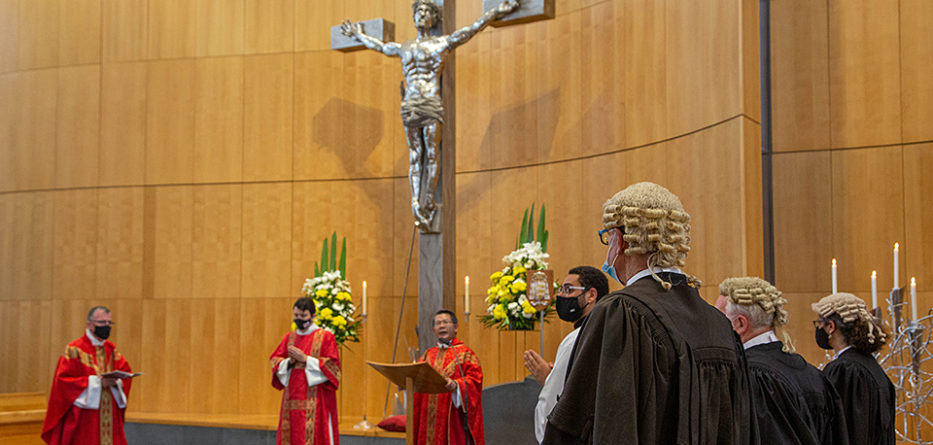Wednesday of the Third Week of Lent
Readings: Deutoronomy 4:1, 5-9; Matthew 5:17-19
10 March
“Do not think that I have come to abolish the law or the prophets; I have come not to abolish but to fulfil. For truly I tell you, until heaven and earth pass away, not one letter, not one stroke of a letter, will pass from the law until all is accomplished.” (Matthew 5:17-18)
Reflection
Any religious law that contributes to a human being’s understanding of how to relate to God, and the need to act mercifully and justly towards others, is to be preserved as far as Jesus is concerned. He only had a problem with religious law when it was used to distort people’s view of God, or as a means to avoid acting mercifully and justly.
To be able to know instinctively how religious law applies, and in what circumstances it can (or should) be dispensed with, requires considerable spiritual maturity and sensitivity. Without that, we will fall into the trap of adhering to it slavishly or just doing what we like when we like.
This is where Church teaching concerning morality and religious practice finds a context. Understanding and seeking to live by the Ten Commandments, for example, remains an essential consideration for Catholics. However, that does not mean that strict adherence to the Ten Commandments (or any Church norm) is enough by itself.
We are, in the words of St Paul, above the law (see 1 Corinthians 6:12). The Spirit is to guide us to live the sort of authentic life that includes and goes beyond the law. We are men and women of the Beatitudes (see Matthew 5) rather than the Ten Commandments. As St Augustine would later say: ‘love and do what you will’ (Seventh Homily on 1 John 4). It is learning what true love means that is the trick.
Reflection by Shane Dwyer.
Reproduced with permission from Evangelisation Brisbane, an agency of the Catholic Archdiocese of Brisbane, who have kindly supplied these daily Lenten 2021 reflections from their publication Look to Jesus: 52 Daily Reflections for Lent and Easter.








